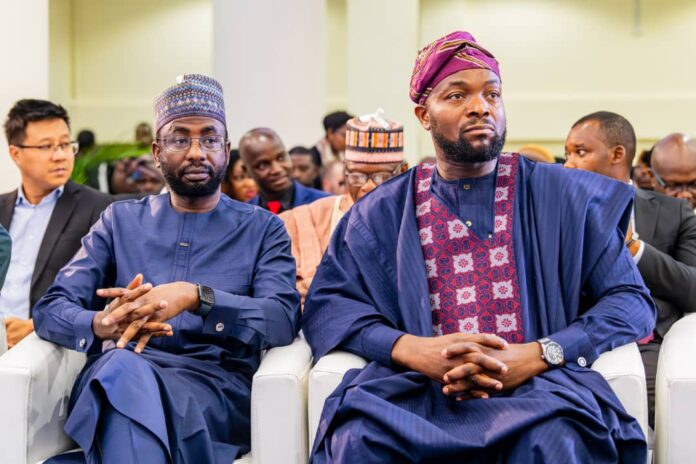
National AI Strategy: A Vision for Nigeria’s Technological Future
By Shuaib S. Agaka
The National Artificial Intelligence (AI) Strategy workshop recently convened by the Nigerian government stands as a pivotal moment in the nation’s technological journey. Organized under the auspices of the Ministry of Communications, Innovations, and Digital Economy and the National Information Technology Development Agency (NITDA). this event underscores Nigeria’s concerted efforts to tilt towards AI-driven innovation and sustainable growth.
The move by the Ministry and NITDA reflects a holistic approach to harnessing the potential of AI within Nigeria’s socio-economic framework. By synergizing policy initiatives with technological expertise, the workshop aimed to lay down foundational strategies that align with global best practices while catering to Nigeria’s unique developmental needs.
Within the context of Nigeria’s technological advancement, this workshop holds immense significance. As the world increasingly embraces AI as a transformative force across industries, nations like Nigeria are poised to leverage these technologies for inclusive growth, enhanced productivity, and societal progress.
Over the past decade, Nigeria has witnessed remarkable strides in digital innovation, initiatives such as the National AI Strategy workshop further fuel this momentum, signaling a strategic shift towards harnessing advanced technologies to address complex challenges and unlock new opportunities.
Moreso, on the brighter side, the vision of the workshop extends beyond localized strategies for building AI limited to Nigeria or Africa, encompassing a global approach that addresses challenges and opportunities on a worldwide scale. By championing these principles, Nigeria aims to position itself as a responsible steward of AI technologies, fostering trust among citizens, businesses, and global partners.
Nigeria’s readiness to embrace the National AI Strategy underscores a strategic shift towards harnessing cutting-edge technologies for holistic societal progress. The convergence of policy initiatives, infrastructure development, and human capital investment reflects a concerted effort to position Nigeria as a regional and global leader in AI-driven innovation.
The foundation laid by the National AI Strategy not only addresses immediate technological challenges but also sets a trajectory for sustainable growth and resilience in a rapidly evolving digital landscape.
As global discourse around AI intensifies, the spotlight is on nations to not only harness AI for economic competitiveness but also ensure equitable access and ethical standards. Nigeria’s commitment to this agenda was palpable throughout the workshop, resonating with global calls for responsible AI governance and cooperation.
Furthermore, the National AI Strategy workshop’s deliberations extend far beyond theoretical frameworks, delving deep into the practical implications of integrating AI into Nigeria’s socio-economic fabric. By envisioning a future where AI spread throughout various sectors, stakeholders explored transformative opportunities and the accompanying challenges that demand strategic foresight and proactive measures.
One of the most profound potentials of Nigeria’s National AI Strategy is expected in the healthcare sector. AI-driven innovations that can significantly enhance medical diagnoses through advanced analytics, predictive modeling, and image recognition technologies. From early disease detection to personalized treatment plans, AI-powered healthcare solutions hold the promise of improving patient outcomes, reducing healthcare costs, and bolstering overall public health initiatives.
Also, it holds transformative potential for Nigeria’s agricultural sector, a cornerstone of the nation’s economy. AI applications such as precision farming techniques, predictive analytics for crop management, and drone technology for monitoring agricultural landscapes can optimize productivity, minimize resource wastage, and enhance crop yields. These advancements will not only benefit farmers by improving efficiency and profitability but also contribute to food security and sustainable agricultural practices.
Beyond specific sectors, the integration of AI into Nigeria’s economic framework is poised to drive overall economic competitiveness. Data-driven insights derived from AI algorithms will enable businesses to make informed decisions, optimize supply chains, and identify market trends. Automation of routine tasks through AI-powered systems also frees up human capital for higher-value tasks, fostering innovation, and driving economic growth in a rapidly evolving global marketplace.
Also, a robust National AI Strategy sends a clear signal to domestic and international investors about Nigeria’s commitment to fostering a conducive environment for AI-driven ventures. The convergence of policy support, infrastructure development, and skilled workforce initiatives is likely to attract capital inflows, technology transfers, and strategic partnerships, bolstering the overall innovation ecosystem.
Furthermore, the vision is poised to catalyze entrepreneurship and innovation ecosystems across Nigeria. By leveraging AI tools and platforms, startups and SMEs can unlock new avenues for growth, develop scalable solutions, and access global markets, thereby contributing significantly to job creation and economic diversification.
The climax of the National Artificial Intelligence (AI) Strategy workshop in Nigeria marks a pivotal milestone in the nation’s technological trajectory, signaling a strategic pivot towards harnessing AI for inclusive growth and global competitiveness. The collaborative efforts between the Ministry of Communications, Innovations, and Digital Economy alongside NITDA underscore Nigeria’s commitment to shaping a future where AI serves as a catalyst for socioeconomic transformation across diverse sectors.
The National AI Strategy not only outlines strategic initiatives but also underscores Nigeria’s readiness to embrace the Fourth Industrial Revolution (4IR) and its associated technologies. By prioritizing digital literacy, skill development, and collaborative ecosystems, Nigeria aims to foster a culture of innovation, entrepreneurship, and lifelong learning essential for sustained technological leadership.
In essence, the commendable initiative showcased by the Ministry and NITDA through the National AI Strategy workshop not only reflects a forward-thinking approach to technological advancement but also underscores the nation’s commitment to leveraging AI as a tool for solving complex challenges, driving innovation, and fostering inclusive development. By aligning national strategies with global AI governance principles and collaborative frameworks, Nigeria stands poised to navigate the AI landscape with resilience, responsibility, and a vision for a prosperous digital future.















